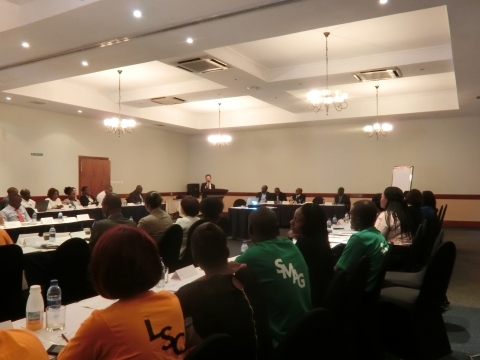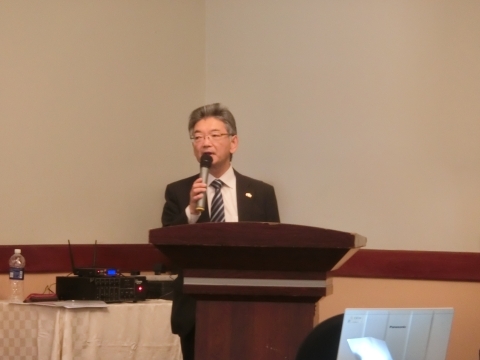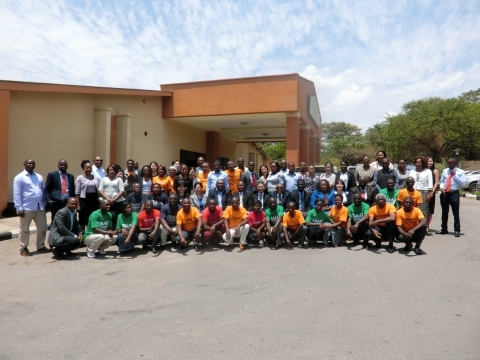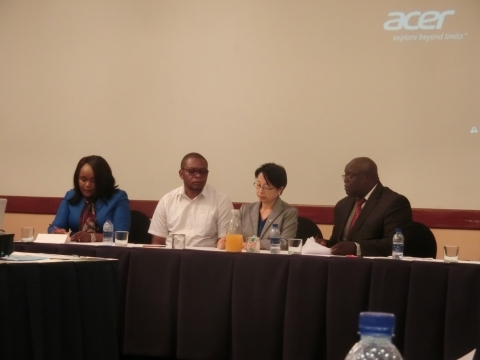Workshop of the “Maternal, Newborn and Child Health (MNCH) One Stop Service Project in Masaiti and Mpongwe Districts in Zambia” (2015-2017)
2017/11/22


| The Meeting | Speech by the Ambassador |


| Group Photo | Handover Signing |
On November 7th, a workshop of the “Maternal, Newborn and Child Health (MNCH) One Stop Service Project in Masaiti and Mpongwe Districts in Zambia”, implemented with the funding from the Government of Japan of the Grant Assistance for Japanese NGO Projects, was held at a hotel in Lusaka. The purposes of this workshop were to share the outcome and best practices of the project with the participants and to handover the project to District Health Offices of Masaiti and Mpongwe Districts, Copperbelt Province.
The project started in December 2014 based on a grant contract between the Government of Japan and Japanese Organization for International Cooperation in Family Planning (JOICFP) of the total amount of up to 1,747,130 USD made available by the former as the Grant Assistance for Japanese NGO Projects. Before concluding the three-year project, representatives from JOICFP, the Ministry of Health, District Health Offices, Planned Parenthood Association of Zambia (PPAZ), Safe Motherhood Action Groups (SMAGs), Peer Educators (PEs) and Local Steering Committees (LSCs) gathered together at the workshop to share their accomplishments.
At the opening of the workshop, Mr. Hidenobu Sobashima, Ambassador of Japan to the Republic of Zambia, Dr. Kennedy Malama, Permanent Secretary of the Ministry of Health, Ms. Mayumi Katsube, Executive Director of JOICFP and Ms. Nang’andu Joan Kamwale, Executive Director of PPAZ stated the importance of the workshop, among their other remarks. During the workshop, for JOICFP to handover the project to PPAZ and the District Health Offices of Masaiti and Mpongwe Districts, their representatives signed the handover document.
The accomplishments introduced at the workshop included, improved rates of attendance at ante partum examinations, increased numbers of facility delivery, dissemination of knowledge regarding family planning, home visits conducted by SMAGs for mothers after their childbirth, increased numbers of participation by men in the communities on maternal, newborn and child health matters and more. By the continuous cooperation among all those concerned, the project is expected to bear fruit after the handover.
Through the “Grant Assistance for Japanese NGO projects” scheme, the Government of Japan provides grant assistance to Japanese NGOs which implement economic and social development projects in developing countries.
To read the speech by Ambassador Sobashima at this ceremony, please click here.
